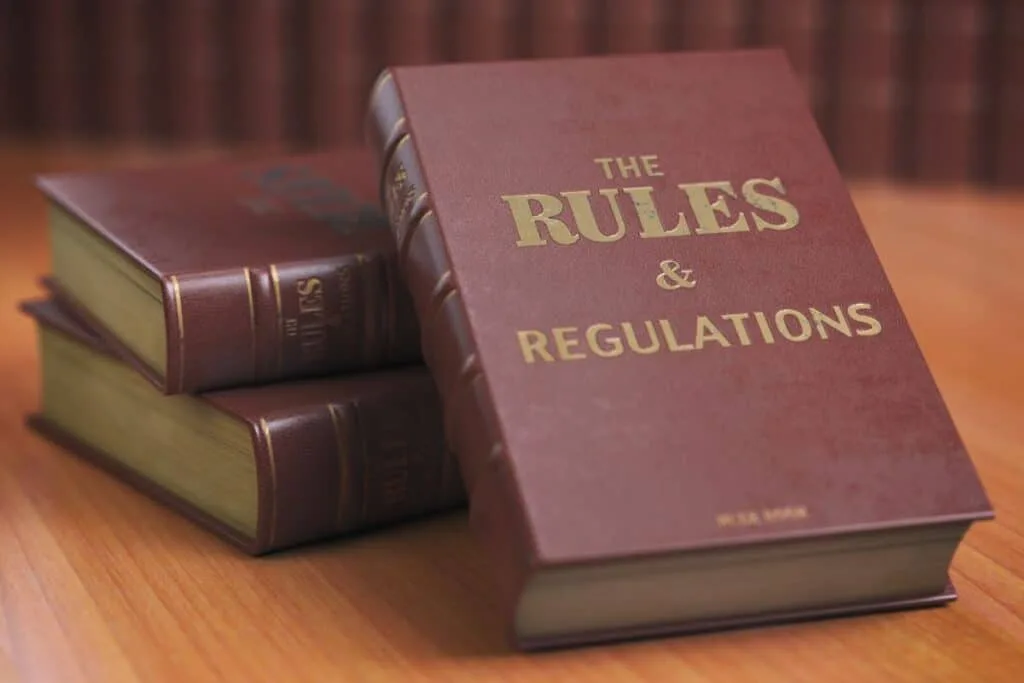
Start your new home journey
Request A Brochure
Book a Park Visit
Park Home Rules and Regulations UK: Essential Guidelines for Residents

Living in a park home in the UK comes with a unique set of rules and regulations designed to protect both homeowners and the site operators. Understanding these regulations helps ensure you have a smooth experience and that your rights are safeguarded. Whether you’re considering buying a park home or already reside in one, knowing the legal framework and guidelines can help you to make the most of your life on a residential park significantly affect your daily life.
The legal aspects of living in a park home can be quite different compared to traditional housing. Park home residents have specific occupancy and tenure rights, which include protections against eviction and unfair treatment. It’s important to be aware of these rights to mitigate potential issues with site operators.
Guidelines for park home living also cover requirements such as maintenance standards, safety regulations, and procedures for selling or transferring ownership of your home. These aspects not only affect your comfort and security but also influence the future resale of your property.
Key Takeaways
- Park home rules protect both homeowners and site operators.
- Familiarise yourself with your occupancy and tenure rights.
- Maintenance and safety guidelines impact your living conditions.
Legal Framework Governing Park Homes

Park homes in the UK are subject to specific legal frameworks to ensure fair treatment of residents and safe, well-maintained living conditions. The key elements include the Mobile Homes Act and regulations enforced by local authorities.
The Mobile Homes Act
The Mobile Homes Act 1983 is a fundamental piece of legislation that outlines the rights and responsibilities of park home residents and site owners. Key protections include security of tenure, meaning you cannot be evicted without a court order. Additionally, site owners must provide a written statement detailing terms of occupation.
Amendments to the Act, such as the Mobile Homes Act 2013, have strengthened protections. For instance, the 2013 amendment introduced a fit-and-proper person requirement for site owners, ensuring better management standards. Rent reviews and pitch fee increases are also regulated to prevent unexpected costs.
Local Authority Regulations
Local authorities have a pivotal role in enforcing standards and ensuring compliance with the law. They issue site licences, which are mandatory for operating a park home site. These licences include conditions related to health and safety, infrastructure maintenance, and the general living environment.
Inspections and compliance checks are regularly conducted to ensure standards are upheld. If a site fails to meet requirements, authorities can impose penalties or revoke the licence. Residents can also approach local councils for disputes and issues involving site management or living conditions.
You should familiarise yourself with both local and national regulations to understand your rights and the obligations of site operators effectively.
Occupancy and Tenure

Understanding the rules and regulations around occupancy and tenure is crucial for both residents and park operators. It’s vital to know who can reside in park homes and what protections are in place for those living there.
Residency Qualifications
To live in a park home, you typically need to meet specific residency qualifications. These can include age restrictions, as many parks cater to retirees and have a minimum age requirement, often set at 45 or 50 years.
Some parks may also require you to be a permanent resident, meaning that you need to live there year-round and pay council tax on the property. Owning a park home might also necessitate a background check or financial assessment to ensure that you can meet any site fees and maintenance costs.
Tenure Security
Tenure security is an important aspect of living in a park home. Park home residents in the UK are protected under the Mobile Homes Act 1983 (as amended). This means that you cannot be evicted without proper legal procedures. You generally have the right to stay in your park home indefinitely, as long as you comply with the site’s rules and pay any applicable fees. If discrepancies do occur between you and the park operator there are legal options available to ensure your rights are safeguarded.
Park Home Living Guidelines

Living in a park home involves adhering to specific guidelines to ensure a safe and harmonious environment. These guidelines cover the maintenance of your home and the community standards you must follow.
Maintenance Requirements
Maintaining your park home is crucial for safety and longevity. Ensure the exterior of your home is clean and in good repair. Regularly check the roof, windows, and doors for any damages. Paintwork should be kept fresh to prevent deterioration.
Keep your plot tidy by regularly mowing the lawn and trimming hedges or shrubs. Dispose of rubbish in designated bins to avoid attracting pests. Ensure gas, electricity, and water services are regularly inspected and maintained by qualified professionals.
Installing smoke and carbon monoxide detectors is essential. You will find that new residential homes will have these fittings included, however if you are purchasing an older home make sure to check if these are present. Once living in the home make sure to test these devices regularly. It’s also important to have a clear plan for emergency repairs, with contact details of reliable tradespeople on hand. Keeping your home in good condition not only improves its appearance but also enhances safety and comfort.
Community Standards
Living in a park home community involves respecting the rules that ensure a peaceful co-existence. These conditions vary from park to park but usually include things such as the following:
Noise levels
Should be kept at a minimum, especially during the evenings. Parties and gatherings should not disrupt your neighbours.
Pets
Whilst usually welcome on residential sites, it is important to manage them responsibly. Keep pets under control, and clean up after them to maintain the cleanliness of shared spaces.
Parking
Parking rules vary from one park to another. When choosing the park that is best suited to you, familiarise yourself with the parking entitlement of the home and the communal areas of the site. Ensure you use the designated parking areas and avoid blocking roadways or other properties.
Compliance with community rules
This extends to private gardens and communal areas. Ensure your garden is neat and aligns with the community’s guidelines. Respect communal areas by keeping them litter-free and adhering to regulations regarding their use. Maintaining these standards helps create a harmonious living environment for everyone.
Sale and Transfer of Park Homes

When selling or transferring a park home in the UK, certain rights and obligations come into play. These include the owner’s rights to sell and the buyer’s obligations to adhere to site rules and regulations.
Owner’s Rights
As the owner, you have the right to sell your park home to anyone you choose. The Mobile Homes Act 2013 simplified the process, ensuring you don’t need the park owner’s approval for the sale. However, you must inform the site owner about the transaction.
Key Points to Note:
- You may set your own sale price.
- Completion of a Written Statement is required, outlining terms.
- Payment of 10% commission to the site owner is mandatory.
The sale process is straightforward when these steps are followed.
Buyer’s Obligations
Buyers must be aware of their responsibilities upon purchasing a park home. Compliance with site rules is crucial, and buyers should be provided with a copy of the site agreement before the purchase.
Important Obligations Include:
- Adhering to site maintenance standards.
- Ensuring council approval for residency.
- Being responsible for site fees and pitch maintenance.
Fulfilling these obligations helps in maintaining good relations with the site owner and community.
Frequently Asked Questions
This section provides detailed information on updated regulations, required distances, residency permissions, site owner responsibilities, and eviction circumstances.
What are the updated rules and regulations for residential park homes in the UK?
New regulations focus on residency rights, safety standards, and site maintenance. Park home owners should be aware of local council guidelines and ensure compliance with the latest fire safety and health regulations.
What legal distance is required between park homes in the UK?
The legal minimum distance between park homes is typically 6 metres. This stipulation helps to prevent the spread of fire and provides ample space for maintenance and resident privacy.
Is permanent residency in a park home permitted within the UK?
Yes, permanent residency in a park home is permitted. However, it is essential to verify that the park has a residential licence, which allows for full-time living.
What responsibilities does a park home site owner have towards residents according to UK law?
Park home site owners must maintain the site in good order, ensure common areas are safe, and comply with health and safety regulations. They must also respect residents’ rights and provide clear terms on site agreements.
Under what circumstances can one be evicted from a park home in the UK?
Eviction from a park home can occur due to breaches of the site agreement, such as non-payment of pitch fees or antisocial behaviour. Legal procedures and notice periods must be followed, ensuring residents’ rights are protected.
Our Residential Parks
Take your first step to building your perfect lifestyle at a Tingdene residential park
View All Parks